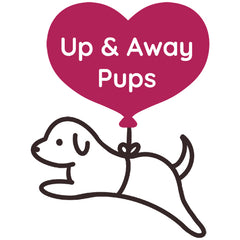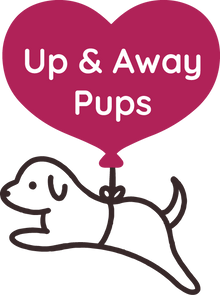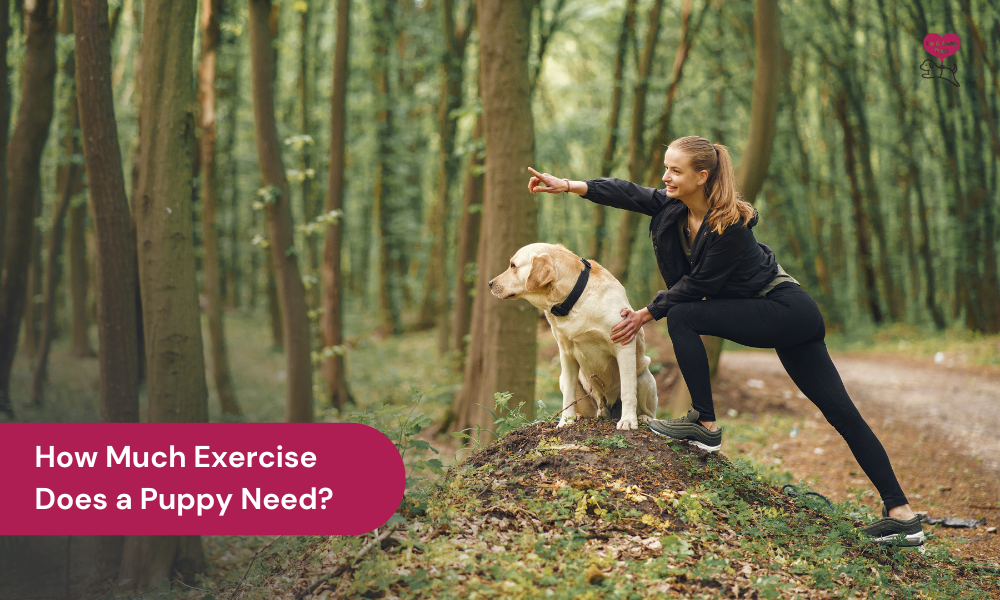How Much Exercise Does a Puppy Need?
Puppies frequently appear to have an outstanding amount of energy, and they can become bored or even irritated if they do not get the right amount of energy. Whenever a puppy is bored, it often finds ways to entertain itself by chewing, digging, barking, and getting involved in different types of mischief.
Although exercising is the ideal way to offer a healthier outlet for the energy of your puppy, pet owners should ensure that they are never over-exercising their pups and that they avoid a few specific types of exercises to help with the puppy's growth. Making your pup prone to way too many exercises or the wrong type often leads to joint issues later in the future, mainly in the bigger dog breeds. Therefore, a puppy should be exposed to about two sessions of five minutes of exercise every month of age. Here in our post today, we are going to check out the further details.
How Much Exercise Does a Puppy Need?
So, how much exercise does a puppy need? Exercise is extremely essential for a puppy as it aids in their development both mentally and physically. It offers them a place to expose their energy along with a growing bond between you while you both explore the world together. It even offers your pup a better scope of discovering the world that is way past your front door.
How Long Should You Walk a Puppy?
This kind of exercise does not imply that you need to make your pup walk around the entire countryside or the local roads. When it comes to constant puppy walking, the walks should stay within 5 minutes for every month of age, about a couple of times each day. Therefore, a five-month-old puppy only needs 25 minutes of walking twice each day, as this should be the limit across the bigger breeds.
Walking alongside a human is often tiring for a pup, and walking at a constant speed is completely unnatural as it develops with time.
Walking for such a short while should help relax your pup, giving it time to stop by, explore, sniff, or investigate the surrounding environment. Puppies' brains develop like their bodies, and this early exploration of the world around them is important for their development.

Retain the constant structured puppy walking to no more than two minutes a single time. If at any moment the puppy flops down, appears tired, or seems reluctant to walk, hear them out and act in the right way.
Playtime Counts Too!
Irrespective of their appearing to have endless energy, the puppies are best at self-limiting over their exercise, and ensuring that your pup has several scopes for running around and playing under its level of energy is important. If you watch out for your puppies at this age, you will find that they are running around madly for a couple of moments and then flop down to sleep or rest.
This is more than just their growing bodies. The puppies often do not have a cardiovascular system for their strength, so their short bursts of energy are what they have in terms of managing while they are building their stamina down the time.
Ample of Running Around
Allowing your pup to run around freely at home, in a safe or enclosed garden away from other animals, is the ideal way for them to burn energy. But only take your puppy out for a run with you once they have developed into adults, especially among small dog breeds like Havapoo, Maltese, or Pomeranians.
How to Not Over-Exercise Your Puppy
Whenever we initially get a dog, we often wonder about the long, rambling walks with our new furry companions, and it is without any doubt that exploring the local parts or the countryside is a real joy of owning a pup. While the dog ownership might appear enticing, we at times forget that our new pup is just a baby and, like any other baby, they have limited physical abilities. It means that we can cause lasting damage by over-exercising your puppy or expecting a lot more during the early weeks or months.
Till a dog reaches its sexual maturity, which often differs among the breeds, their bones are still undergoing development and growth. The growth plates in the bones enable them to lengthen as the dog grows, to stay soft for a significantly longer time, which is the reason why over-exercising your pup will often make them prone to injuries. Injuries happening at this time will take a long to heal and cause lasting issues for the dogs. Along with the softer growth plates, the rest of the bones in puppies are soft, too, making them break easily.
Here, it is more than just the bones that are developing as these are often held together with the tendons, muscles, and ligaments that operate in modes of supporting the growing joints and bones in pups as they are often at risk to injuries that are often caused due to over-exercising your pup or from introducing them to wrong play or exercises.
What Type of Puppy Exercise Is Appropriate?
There are numerous exercises that you can perform with your pet to make them stay entertained and healthy. Here are a couple of different things that your puppy will love.
Thinking Activities
Puppies often have busy brains in these early weeks when they are learning all they can about the environment around them. Therefore, offering your pup anything else along with physical exercises can help them stay active; however, it also helps keep their minds active. Mental development is more than just essential to physical development.
Puppy Training
Initiating the life skills training earlier on with the pup is definitely the ideal way to keep their minds and bodies stimulated, build effective bonds between you, and help them fit into this hectic life they are finding themselves in. Every bit is extremely tiring, identical to the physical exercises.

Puppy Play as Part of Your Puppy's Exercise
Puppy Sniffing Orange Chew Toy
One of the significant joys associated with dog ownership is knowing to play together, as it forms an integral part of the daily exercises for your pups. Numerous dog owners refrain from playing with their dogs when it is the ideal thing one can do to establish a good relationship and trust.
However, the games that you choose should be gentle without including rough play or pushing your pups around with your hands. Ensure to use toys that your puppy would enjoy playing with, as it involves some trial and error while you discover the type of games they specifically enjoy.
Ensure that your choice of tuggy games is gentle. You should never pull any toys upwards or onto the sides. Also, avoid sharp twists and turns if you throw the toys, and definitely only jump once your puppy develops completely, especially in some breeds like Miniature Dachshunds.
Puppy Exercise Toys
The interactive toys are the ones that are ideal for puppy exercises as they help in exercising their body while even exercising their brains. Offer your pups the better outlet for their foraging and natural sniffing instincts and help them establish bonds with you, as everything that starts from the stuffed Kongs to creating treasure hunts and sniffing trails in the garden is where the puppies would use their nose to explore in search for food and other treats.
Puppy Exercise Before Vaccinations
There are often when the puppies are unable to go outside for exercise or play, as games and enrichment toys can help keep their minds and bodies in top shape. Here are the ideal things to try!
- Find the treat
- DIY snuffle mats
- Scent trails
The homemade toys like the treats in the kitchen roll tube or screwed-up toilet.
Puppy Exercise Safety Tips
There are a couple of things to ensure while exercising with your pup. Here are a couple of beneficial safety tips one should remember when exercising your pup.
- Ensure that your pup knows how to walk or lead before it is completely vaccinated or prepared to move out.
- Initiate with the short walks and ensure to allow your puppy to stop, sniff or rest whenever required.
- Inspect the weather before heading out for a walk. Avoid taking your pup for a walk whenever it is extremely cold or hot.
- Stay carried off or walk too far, as you need to remember to get back home sooner.
- Ensure carrying the poop bags with you often, more than you might think.
- Also, ensure that the puppy has a comfortable harness that will never rub or irritate it, and inspect it frequently to see if it requires adjusting to help puppies grow fast.
Final Thoughts
Although the total number of exercises required for the puppy is often restricted, one should always remember that pups' brains are like sponges. Therefore, there is a better time to aim towards puppy training. An appropriate puppy class assists and recommends what is right for the pup.
These first months are those where you make your bond with them by spending time with them, teaching them that this new world is a safe place and you are fun to be around. It is when bonds are formed during games, play, and gentle handling rather than marching over the countryside. There is plenty of time for that later!


